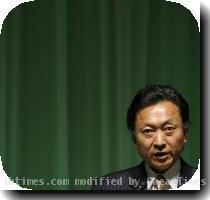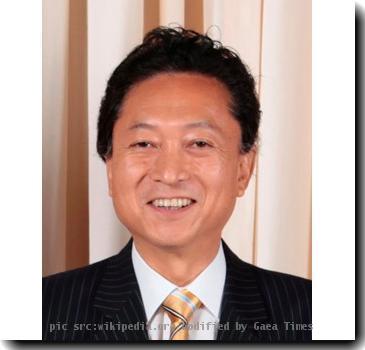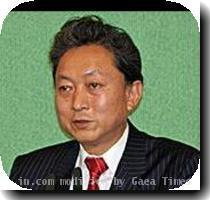Naoto Kan, outspoken populist, elected Japan’s prime minister ahead of July elections
By Tomoko A. Hosaka, APFriday, June 4, 2010
Naoto Kan elected Japan’s prime minister
TOKYO — Japan’s parliament installed Naoto Kan as Japan’s new prime minister Friday, handing the outspoken populist the task of quickly reclaiming public support squandered by his predecessor ahead of July elections.
“My task is to rebuild this nation,” Kan said after he was chosen ruling party chief. Pledging to confront problems linking “money and politics,” he also stressed the need to spur economic growth.
Kan, 63, was finance minister under the unpopular Yukio Hatoyama, who stepped down Wednesday amid plunging approval ratings over broken campaign promises and a political funding scandal.
As prime minister, Kan faces daunting choices in how to lead the world’s second-largest economy, which is burdened with massive public debt, sluggish growth and an aging, shrinking population. He must also rally voter support ahead of upper house elections next month.
Kan, known for standing up to Japan’s powerful bureaucrats, is the country’s sixth prime minister in four years.
“We will work together as one in the face of the tough political situation and the upcoming upper house election and fight together unified,” he said after the party vote. “Our first priority is to regain the trust of the people.”
The path to the parliamentary vote began in the morning, when Hatoyama’s Cabinet resigned en masse. Then the ruling Democratic Party of Japan voted Kan as its new leader. The lower house convened a couple hours later to approve Kan as prime minister.
Kan received 313 votes out of 477, with Liberal Democratic Party head Sadakazu Tanigaki getting 116. The rest went to other candidates of smaller parties. The upper house approved Kan immediately afterward.
On foreign policy, Kan described the relationship with the United States as vital, but stressed the importance of Japan’s ties with regional neighbors.
“With the U.S.-Japan alliance the cornerstone of our diplomacy, we must also work for the prosperity of the Asian region,” he said ahead of the ruling party vote.
In that contest, Kan defeated little-known Shinji Tarutoko, chairman of the lower house environmental committee, by a vote of 291-129, with two invalid ballots. Afterward, the two shook hands and raised their hands together.
In a written candidate’s statement Friday, Kan identified economic recovery and growth as Japan’s biggest challenge. Japan is the slowest growing economy in Asia, and will almost certainly be overtaken in size by China sometime this year. While exports and factory output are rising, unemployment and deflation are worsening.
“I will tackle and pull Japan out of deflation through comprehensive measures from the government and the Bank of Japan,” he said in the statement, hinting that he would seek greater cooperation from the central bank.
He pledged to resume fiscal reforms and work toward sustainable finances, including possible tax hikes, to ensure a strong social security system for Japan’s aging population. Addressing concerns about financial scandals, he vowed to keep politics clean and tighten campaign financing laws.
Kan is seen by many analysts as the DPJ’s best hope for restoring confidence in its ability to govern and deliver a viable roadmap for the future.
He is everything Hatoyama was not — decisive, outspoken and with common roots. Unlike recent prime ministers, he was not born into an elite political family. Several past prime ministers, including Hatoyama, had fathers or grandfathers who were also prime ministers.
“I grew up in a typical Japanese salaryman’s family,” Kan said Thursday. “I’ve had no special connections. If I can take on a major role starting from such an ordinary background, that would be a very positive thing for Japanese politics.”
Kan gained popularity in 1996 as health minister when he exposed a government cover-up of HIV-tainted blood products that caused thousands of hemophilia patients to contract the virus that causes AIDS. During an E-coli outbreak that hit sprout growers hard, he appeared on national television and ate sprouts to dispel rumors that they were unsafe.
Kan, along with Hatoyama, was one of several original members to launch the party that became the DPJ in September 1996 in a merger with several other small parties.
Dubbed “Irritable Kan” for his occasional fiery outbursts, Kan was the first official to acknowledge last year that Japan was in a period of deflation, and has been critical of the Bank of Japan for not doing enough to reverse falling prices.
Wednesday’s resignations by Hatoyama and the party’s No. 2 Ichiro Ozawa — both of whom were embroiled in political funding scandals — appeared to give the DPJ an immediate boost in public opinion. A national telephone poll conducted by The Yomiuri Shimbun, Japan’s biggest newspaper, showed 29 percent support on Wednesday, up 9 points from last weekend.
Some 69 percent of respondents said they approved of the two resignations. It didn’t provide a margin of error, but with 1,090 respondents, the margin of error for this survey would be plus or minus 4 percentage points.
A poor performance in the upper house elections, where half the seats are up for grabs, would not threaten the Democrats’ grip on power because they command a large lower-house majority. But heavy losses would likely force the party to woo new coalition partners to ensure smoother passage of bills.
Associated Press Writers Jay Alabaster, Yuri Kageyama, Malcolm Foster and Mari Yamaguchi contributed to this report.
Tags: Asia, Campaigns, Demographics, East Asia, Japan, Parliamentary Elections, Political Corruption, Political Issues, Political Resignations, Political Scandals, Population Aging, Prices, Public Opinion, Tokyo, Yukio Hatoyama


